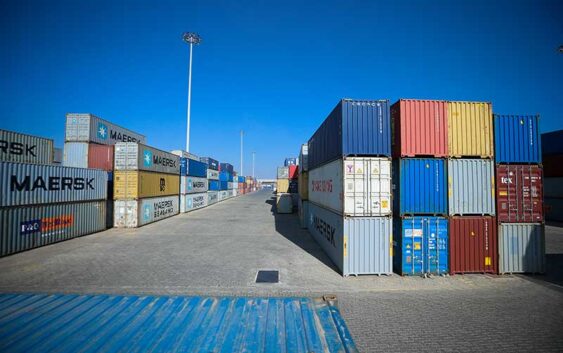- ALGERIA MINISTER RECIEVED HARBOR ENERGY CEO OVER ENERGY PARTNERSHIP
- CAN INNOVATION OUTRUN DROUGTH IN MOROCCO ONGOING WATER MANAGEMENT CRISIS
- SCZONE SIGNED DEAL WITH CHINESE INVESTORS FOR IRON PRODUCTS PROJECTS IN EGYPT
- WESTPROP HOLDING LIMITED SET TO EMBARKED ON PIPELINE PROJECT IN ZIMBABWE
- FORMER TOGO PLAYER ADEBAYOR LAUNCH SOCIAL HOUSING PROJECT IN TOGO
ROADS AS AN ENABLER FOR FOOD SECURITY IN ETHIOPIA

Food security goes beyond ensuring a steady supply. Dependable logistics are key components necessary to move food—and production inputs—from one place to another.
In Ethiopia, a landlocked country of 110 million people with 85 percent of its population engaged in agriculture, timely access to agricultural inputs is vital.
The East African nation imported more than 1.4 million tons of fertilizers last year. With no direct access to the sea, Ethiopia is forced to rely on the port of neighboring Djibouti for imports, highlighting the key role logistics play to ensure the country meets its production targets.
Because of subpar logistics management, efficiency issues and a lack of coordination among government agencies across the two countries, causing congestion within the port of Djibouti, the movement of essential goods slows down significantly.
“Often, there were simply not enough trucks in Ethiopia to transport the large volumes of cargo arriving at the port,” explains Tilahun Kassahun, an IFC Private Sector Specialist based in Ethiopia.
The result? Fertilizer imports often reached Ethiopian farmers only after the start of the rainy season, which runs from June to mid-September.
IFC and the World Bank, through the Ethiopia Trade Facilitation Advisory Project, reviewed Ethiopia’s dry bulk cargo management, helping introduce a system in which a single logistics operator is responsible for handling cargo throughout the entire chain, reducing confusion and delays.
The initiative also helps authorities ensure that cargo arrives at the harbour at an agreed upon time.
“Under this pre-drawn timeline, wheat and other types of food are imported in the fall. Logistics operators then focus on the imports of fertilizers to ensure they get shipped to farmers before the start of the rainy season in June,” Kassahun says.
The pilot initiative is already showing promising results; farmers have been able to access fertilizer faster—and when they most need it.
In the 2018-2019 season, Ethiopia cleared 1.1 million tons of fertilizer imports by mid-September – much of it arriving well after the start of the rainy season. In 2019-2020, however, the country achieved the same volume by May.

